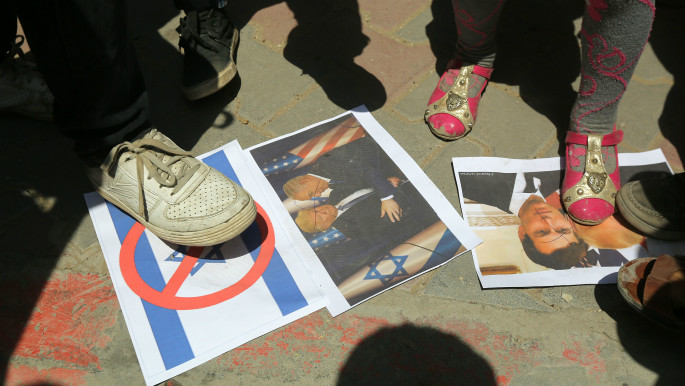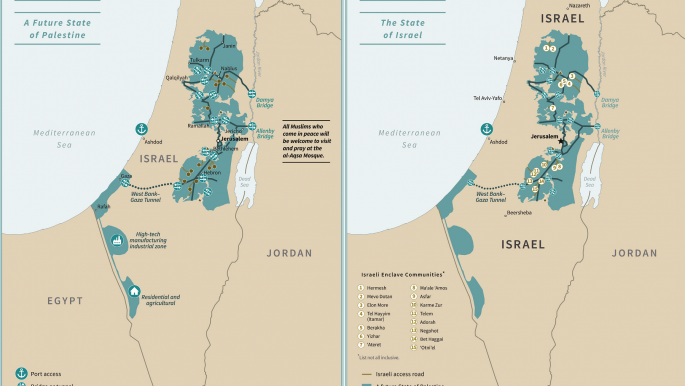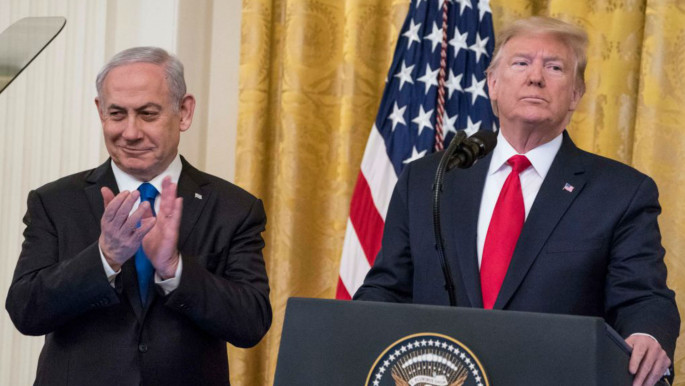'Deal of the Century': US and Israel circle wagons as Abbas heads to NYC
The United States and Israel are working hard this week to blunt Palestinian efforts at the United Nations to push back against the Trump administration's new and controversial plan for peace in the Middle East.
Palestinian President Mahmoud Abbas is set to address the UN Security Council on February 11, hoping to rally international support behind the Palestinian cause and against an American peace initiative which, he says, tips the scales massively in Israel's favour.
Before then, the US and Israel are seeking to close down the Palestinian leader's options at the UN, with President Donald Trump's son-in-law and senior adviser Jared Kushner heading there this week as diplomats work behind the scenes.
"Jared will travel to New York on Thursday to brief UNSC ambassadors on our vision for peace," a US official told Reuters, using an acronym for the UN's 15-nation Security Council.
Once there, Kushner will outline his "Vision to Improve the Lives of the Palestinian and Israeli People", as it is formally known, which Trump unveiled at the White House on January 28, alongside Israeli Prime Minister Benjamin Netanyahu but with no Palestinian envoys present.
Washington's UN envoy Kelly Craft has urged Palestinian officials to use the plan as a basis to negotiate with Israelis instead of once again airing their grievances at the world body's headquarters in Manhattan.
 |
|
| Read also: 'Deal of the Century': Palestinians feel letdown but can they resist American and Israeli dictation? |
"Bringing that displeasure to the United Nations does nothing but repeat the failed pattern of the last seven decades," Craft told reporters.
In a statement, Israel's UN mission said it is "working to thwart" Palestinian efforts to rally international support in the Security Council, as well as in the larger General Assembly, and will run a "concerted diplomatic campaign" against them.
According to Israeli Ambassador Danny Danon, the Palestinians "have to decide whether to continue down the path of rejection and continue to raise protests in the UN, or to come to the negotiating table".
The peace plan has had a mixed reception. Palestinians say it robs them of the long-held goal of running their own country, while many Israelis applaud Trump's decision to recognise Israeli sovereignty over West Bank settlements and the Jordan Valley.
The proposal makes other concessions to Israel, including the creation of a Palestinian capital in Abu Dis, a suburb to the east of Jerusalem. The Palestinians have long sought the whole of East Jerusalem and to control territories that have been held by Israel since a war in 1967.
 |
|
| [Map source: White House 'Peace to Prosperity' document] |
|
So far, the plan has been rejected by the Arab League and, on Monday, by the 57-nation Organization of Islamic Cooperation (OIC), which said it "does not meet the minimum rights and aspirations of Palestinian people".
On Tuesday, European Union foreign policy chief Josep Borrell rejected parts of the US plan, saying it broke with "internationally agreed parameters" and that any Israeli annexation of Palestinian land would be subject to challenge.
The same day, UN Secretary-General Antonio Guterres, said the world body was sticking to the long-established principle of a "two-state" solution in which Palestinians run a country based on the pre-1967 borders.
 |
|
| Read also: Trump and Netanyahu issue a new colonial mandate in Palestine |
"We are the guardians of the UN resolutions and of international law in relation to the Palestinian question," said Guterres. "We are totally committed to support Israelis and Palestinians to come to a peace process for a two‑state solution based on international law."
In New York, Abbas will try to build on opposition from the Europeans, the OIC, the Arab League and others, by putting a draft resolution up for a vote in the Security Council, assisted by Tunisia, which holds the chamber's rotating, two-year Arab seat.
The text of the document is still being negotiated. Palestine's UN ambassador Riyad Mansour said it will feature the "strongest possible" language to reflect the "large opposition to this Trump plan".
In order to pass, a resolution needs nine votes in favour and no vetoes from permanent members Britain, the US, France, Russia and China – meaning Washington can quash any document that gets beyond the nine-vote threshold.
The Palestinians could also propose a General Assembly resolution, where they may well secure a majority of votes in the 193-nation hall, but could only claim that as a moral victory as the document would not be enforceable.
According to Jonathan Cristol, an expert on the Middle East at Adelphi University, the Palestinians have turned to the UN because they lack any better alternatives, but the US and Israel still hold all the cards.
"It is near certain that the Palestinians will gain passage of a UNGA resolution disavowing the plan. However, a UNGA resolution and $2.75 will get you a ride on the NYC Subway," Cristol told The New Arab.
"This is a story we have all seen before, and we know how it ends – another UNGA resolution in support of the Palestinians with no material change for the actual human beings on the ground."
James Reinl is a journalist, editor and current affairs analyst. He has reported from more than 30 countries and won awards for covering wars in Sri Lanka, Congo and Somalia, Haiti's earthquake and human rights abuses in Iran.
Follow him on Twitter: @jamesreinl





 Follow the Middle East's top stories in English at The New Arab on Google News
Follow the Middle East's top stories in English at The New Arab on Google News


